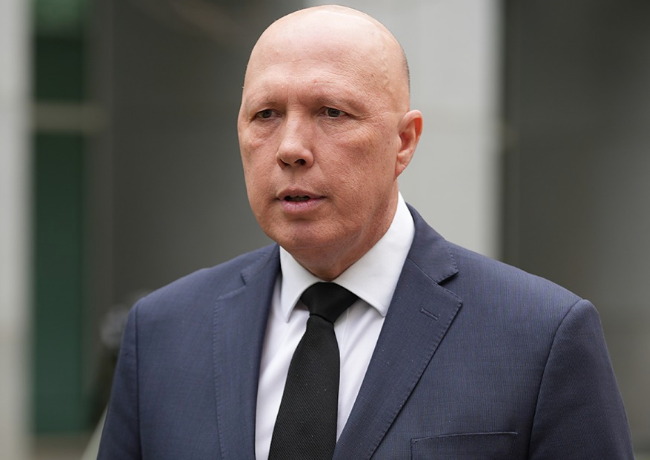
The Liberal conservatives are divided between traditionalists and those on the hard right, the latter wanting the party to turn its back on centrist policies and candidates, writes MICHELLE GRATTAN.
A KEY issue for the Liberals’ election post-mortem that reports later this year – conveniently after the Victorian election – is how the party deals in future with the “teal” phenomenon.
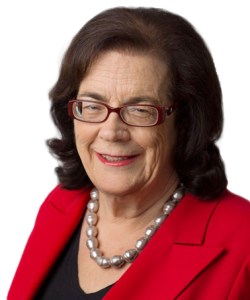
It is highly unlikely the Liberals can regain office without winning back at least some of the batch of seats community independents have wrested from it.
Progressive teals dispatched moderate Liberals. These MPs will be hard to dislodge anyway, once they have dug in. Commonsense would suggest the Liberals at least would need progressive candidates to have a chance in these seats.
But apparently not, in the opinion of a federal Liberal vice-president, Teena McQueen.
McQueen at the weekend told the Conservative Political Action Conference Australia: “The good thing about the last federal election is a lot of those lefties are gone. We should rejoice in that.
“People I’ve been trying to get rid of for a decade have gone, we need to renew with good conservative candidates.”
McQueen – who ousted a moderate, former MP Trish Worth, to become a vice-president – is known for airing her frank opinions, often unhelpful for her party.
The Liberals’ four federal vice-presidents are discouraged from speaking out publicly; when they do, they are supposed to get the okay of the party’s director.
Early this year, with McQueen in mind, the party’s federal executive passed a motion saying that until the election only the president and director could make public statements about federal party matters.
But McQueen, a regular contributor to Sky News, dismisses suggestions she should go quiet. Whether she remains as a vice-president after the 2023 Liberal federal council will be a test of the Liberal organisation.
On his performance so far, opposition leader Peter Dutton is trying to take a pragmatic line on issues (endorsing the proposed anti-corruption commission) and in rhetoric describing the party (declaring “we are the Liberal party”, not the “Moderate party” or the “Conservative party”).
But in the party at large, there is no consensus about the direction the Liberals should take, including whether they should give up on the teal seats or fight hard to regain them.
The Institute of Public Affairs’ John Roskam, a party member for at least three decades, wrote (shortly before the May 21 election), “Eventually Liberal attempts to woo the voters of Vaucluse and Hawthorn could be as futile as the Republicans trying to win back Manhattan”.
John Howard has always liked to talk about the Liberal party as a “broad church” embracing both the conservative and classical liberal traditions.
These days those representing the latter, the moderates, are a shadow of their former selves. Surviving moderate federal parliamentarians are scarce, although they do have some significant positions – Simon Birmingham is opposition Senate leader and Julian Leeser is shadow attorney-general, and spokesman on the Voice to Parliament.
At the grassroots level, there is little incentive for small-l liberals to join the party, especially as for some the alternative can be to mobilise behind a teal candidate (which is happening at present for the November Victorian election).
Meanwhile the Liberal conservatives are divided between traditionalists and those on the hard right, the latter wanting the party to turn its back on centrist policies and candidates.
The traditional conservatives include former Howard-government minister Nick Minchin, currently one of the party’s federal vice-presidents. It was telling that he was booed at the weekend conference. Labelled as a “right winger” through his political career, Minchin wasn’t considered “right wing” enough.
Those from the uncompromising right (some of them, installed via branch stacking, coming from religious groups) appear to have a strong grip in a party that is hollowed out at rank and file level.
This contributes to the many other problems of both attracting and selecting parliamentary candidates with impressive credentials.
Preselection plebiscites, desirable in theory, can have undesirable outcomes when a party is dominated by factions and fanatics. Top-down preselections can be as bad – think Scott Morrison’s captain’s pick of Katherine Deves for the seat of Warringah.
The present (much-reduced) parliamentary Liberal party is unfit for even the purpose of opposition. It’s lacking in depth of talent, short on women, and with more people than it can afford who are embarrassments, taking up seats that should be better filled.
The Victorian and NSW state elections (the latter is in March) will be a test for Liberals versus teals.
NSW Premier Dominic Perrottet this week expressed optimism the teals wouldn’t be as big a problem as in the federal election.
“I think it comes down to policy, and I’m very proud of the policies of the [state] Liberals and Nationals in addressing those issues that the teals raised at a federal government level,” Perrottet said.
“I think you’ll see the policy framework in which we operate was very different to the previous [federal] government in relation to those issues.” We’ll see how that works out.
The review of the federal election result is being done by a former Liberal federal director, Brian Loughnane, and frontbencher Jane Hume.
If Loughnane and Hume are tempted to pull their punches they will do the party a disservice. Scott Morrison might have been the biggest negative for the Liberals in May, but behind him was a party that had become dysfunctional, a reality just highlighted by the success of the teals and other community candidates.![]()
Michelle Grattan, Professorial Fellow, University of Canberra. This article is republished from The Conversation.
Who can be trusted?
In a world of spin and confusion, there’s never been a more important time to support independent journalism in Canberra.
If you trust our work online and want to enforce the power of independent voices, I invite you to make a small contribution.
Every dollar of support is invested back into our journalism to help keep citynews.com.au strong and free.
Thank you,
Ian Meikle, editor
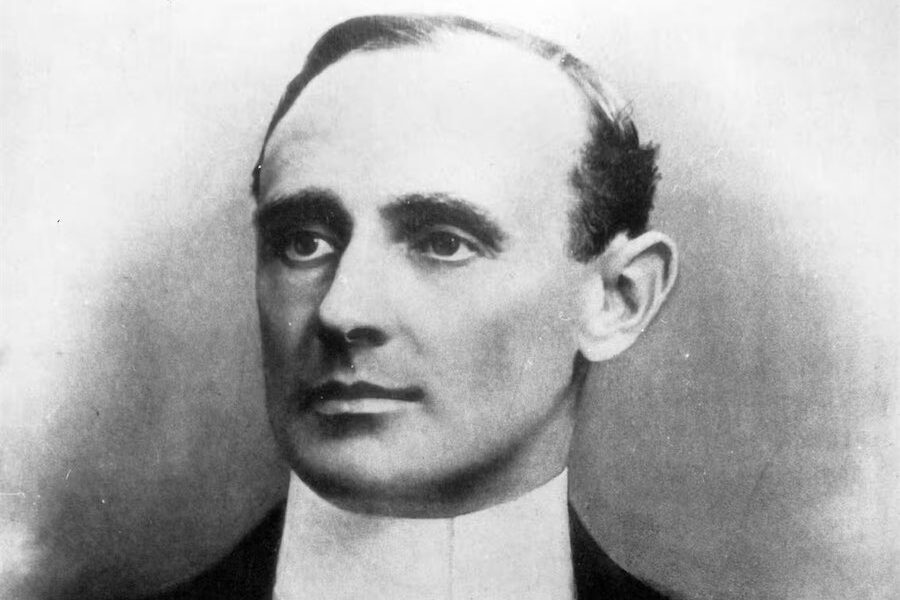
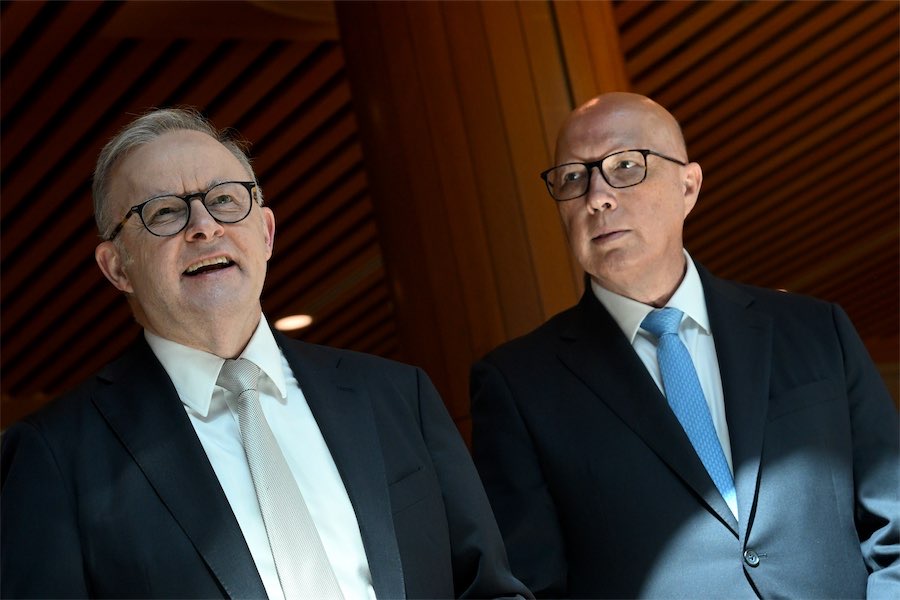
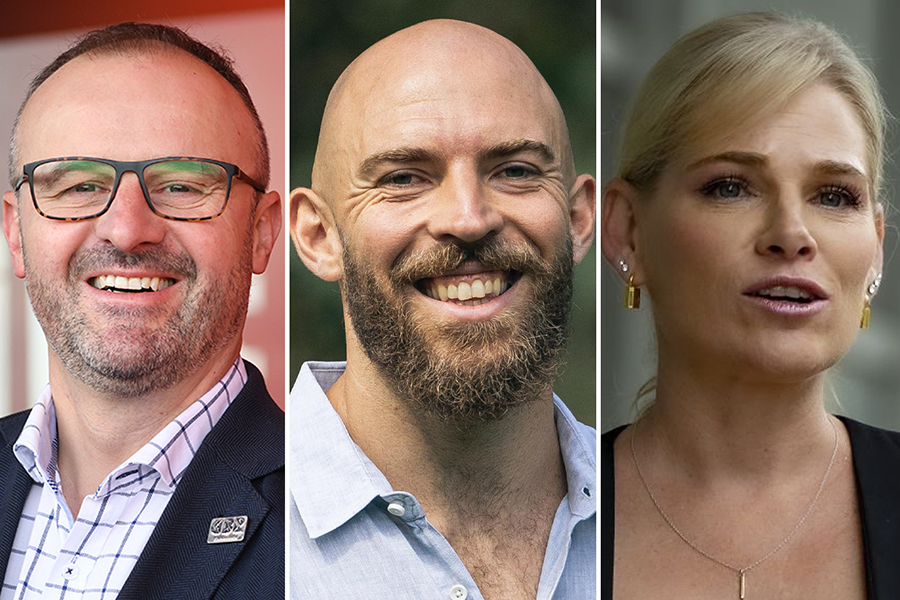

Leave a Reply